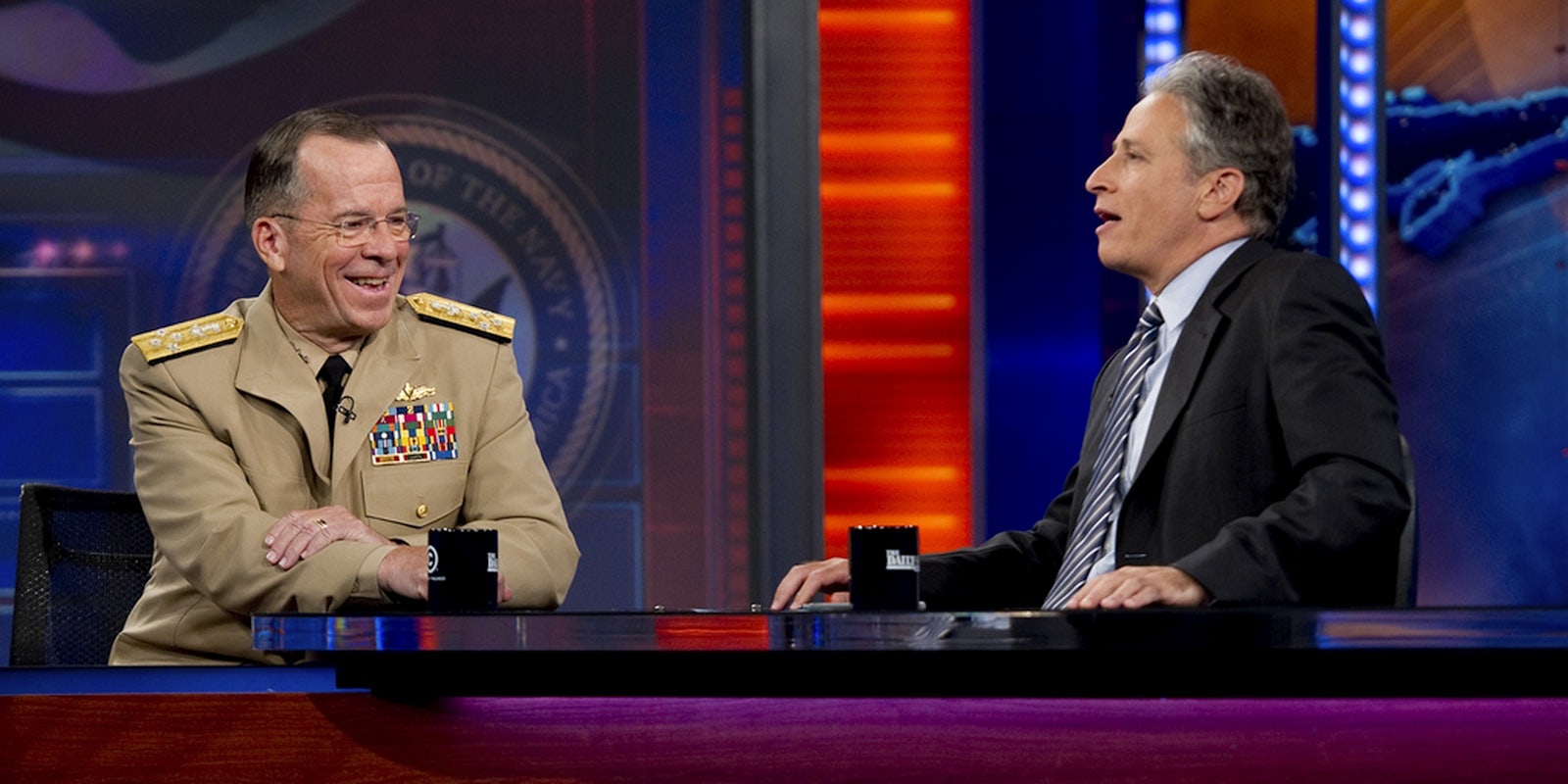This week, a new season of HBO’s Last Week Tonight With John Oliver debuted, which means we’re about to enter a new weekly rendition of what The Awl’s John Herman calls The John Oliver Video Sweepstakes. Here’s how he describes them:
Each week, the Content industry observes a sacred ritual: Together, but not quite in sync, dozens of websites embed and then post the longest segment from John Oliver’s HBO show, Last Week Tonight. That John Oliver’s weekly video(s) will go viral is, at this time, a given. Whether or not the posts that embed those videos will go viral is another matter altogether. Each time around there are winners, losers, and mere participants.
What Herman is cynically describing is the stench of desperation that plagues the news industry in its rush to aggregate clips from late night TV shows, always with the hope that a particular post will trigger the Facebook algorithm in just the right way, thereby creating a vacuum to suck in hundreds of thousands of pageviews. It’s not just John Oliver clips that are subjected to such Facebook gold mining; every late night comedy show from Jimmy Kimmel Live to The Tonight Show Starring Jimmy Fallon immediately chops up its broadcasts into viral-ready, short clips and plasters them across multiple embeddable video channels, all with the hope that they will be picked up and distributed across dozens of the most popular news sites.
To find the genesis of this late night internet sweepstakes, one must look to John Oliver’s previous employer: The Daily Show with Jon Stewart. It was Stewart and his staff who first recognized how the Internet could serve as a marketing vehicle to recruit new fans and viewers for the show without cannibalizing that very TV viewership. And they likely learned this lesson from a liberal political blog called Crooks and Liars.
In the early-to-mid aughts, Crooks and Liars was one of the most popular political blogs on the internet, mostly because it had learned to capitalize on one brilliant insight: that it could monitor cable news shows and post the most outrageous or entertaining segments as standalone clips online. Because it did this before the invention of YouTube, it often had a complete monopoly on these clips, thereby benefiting from nearly all the online buzz that was generated by them. It was Crooks and Liars and a few other enterprising blogs like it that first began taking The Daily Show and posting individual segments from the previous night’s episode, and this served as a tremendous marketing vehicle for Stewart’s then-nascent brand.
In fact you could argue that Stewart owes much of his success to the fact his stint at The Daily Show came along just as the Internet was beginning to amass near-universal adoption. In 2004, his now-famous rant against Tucker Carlson and Paul Begala on CNN’s Crossfire was the most-cited story in the blogosphere, and it was one of the first instances when a video clip of a TV segment received more views online than it did when it was originally aired on television. Perhaps this is why Jon Stewart was sharply critical when Daily Show parent company Viacom decided to pull Daily Show clips from YouTube. “There was a ton to gain from both companies,” he said. “Viacom puts its content on YouTube and it gets exposure, and people know about their programming. It’s a win for everybody in this situation.”
Eventually, some observant staffer at Comedy Central realized that the company could make the online distribution of Daily Show content easier, and so starting sometime in the late aughts (I had a hard time pinning down exactly when), it began releasing episodes of The Daily Show on its website, already chopped up and primed for embedding. The strategy worked, and these days Comedy Central is an eager uploader to YouTube, regularly posting clips from nearly every original show on its roster. It seems that Viacom finally got the memo.
And so did the other late night shows, and now you have dozens, sometimes hundreds, of websites vying every day to be the first to post embeds of these shows’ latest rants and celebrity stunts. In fact, the trend has come full circle: In his first season on HBO, Oliver performed a three-minute rant against the arms race of hyperbolic headlines that seek to distribute his videos with claims that Oliver “eviscerated” a particular politician or industry. His conclusion? “The Internet does not know how to describe things anymore.”
But perhaps he should direct his complaints to his former boss. After all, it was Stewart who first “eviscerated” Tucker Carlson and Paul Begala all those years ago. It was only a matter of time before the Internet realized the opportunity that evisceration provided.
Simon Owens is a technology and media journalist living in Washington, D.C. This article was originally published on his personal site. Follow him on Twitter, Facebook, or Google+. Email him at simonowens@gmail.com.
Photo via Chairman of the Join Chiefs of Staff/Flickr (CC BY 2.0)


